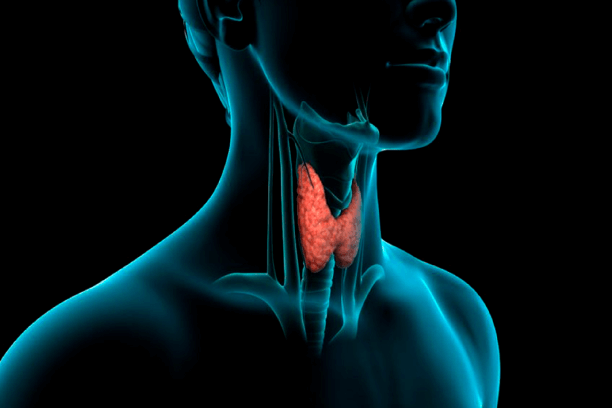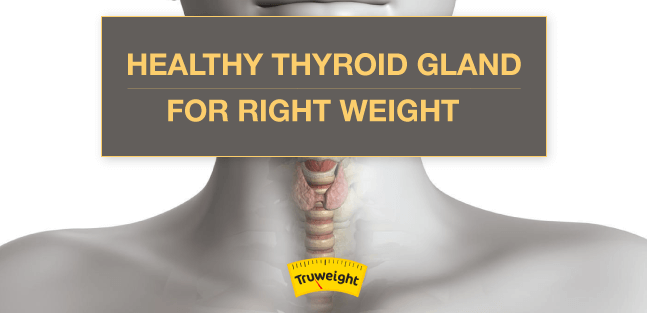The thyroid gland which occurs in the base region of our neck is a very important endocrine gland which regulates hormone secretion for a healthy body.
The involuntary mechanism of our body is so amazing! The distributed endocrine system of the body is a part of this amazing involuntary body mechanism.
The endocrine system or the system of glands in our body control cellular processes by releasing chemical substances known as hormones.
Table of contents
- Maintains hormone levels
- Body growth
- Develops nervous system
- The Regulates lipid metabolism
- Regulates body temperature
- Regulates hear beat Renal detoxification
The release of hormones is regulated by the head gland also called the pituitary gland so as to maintain a healthy level of hormones in the body for healthy body mechanism.
The thyroid gland which occurs in the base region of our neck is a very important endocrine gland.
Here are the seven most important functions of the thyroid gland:

1] Releases and maintains hormone levels in the body
The thyroid gland releases two very important hormones the T3 and T4 hormones. The thyroid gland also releases a hormone called Calcitonin.
Thyroid gland receives signals from the TSH and TRH hormones released by the pituitary gland. When the level of the thyroid hormones in the blood is adequate, the pituitary gland stops releasing TSH and TRH which causes the epithelial thyroid cells to ‘shutdown’ thus stopping the release of the thyroid hormones.
When the levels of thyroid hormones drop below adequate levels, the brain releases TSH and TRH hormones which stimulate the thyroid gland to release the T3 and T4 hormones.
2] It Regulates growth and development of the body
Thyroid hormones play a very important role in cell functioning. The body grows through a process of cell division and growth of cells. The thyroid hormones make the body cells undergo their normal process of division and growth thus causing the body to grow. Children who have hypothyroid problem show symptoms of low height gain.
Regulate the protein metabolism of the body. Thyroid hormones in conjunction with hormones like insulin, growth hormones and glucocorticoids and other hormones enable normal protein metabolism in the body. Thyroid hormones stimulate the cells of the body to produce important proteins.
3] Develops of the central nervous system
The central nervous system of our body comprises of the brain and spinal cord and the nerves. Neurons are the typical cells that make up the central nervous system.
Neurons have specific tasks to perform. Thyroid hormones play an important role in the proper functioning of the neurons. Scientific studies have established that thyroid hormones help in the development of the brain.
The brain starts developing in the fetus and significant brain and nervous system development occur alongside the development of the thyroid gland.
Several medical conditions related to neurological dysfunction have been reported in people suffering from thyroid diseases.
4] The Regulates lipid metabolism of our body
Thyroid hormones influence almost all metabolism processes of the body. Lipid metabolism or the breakdown of lipid substances is important for the maintenance of normal body weight.
One of the symptoms of hypothyroidism is rapid weight gain syndrome. This is because due to inadequate levels of thyroid hormones, the body is not able to break down lipid substances adequately.
The excess lipid substances keep accumulating in the body leading to obesity. Thyroid hormones are lipid soluble and enter the cell boundaries. They act on call centres to increase Oxygen uptake and hence enabling better lipid metabolism.
Thyroid hormones also mobilize the triglycerides stored in the fatty tissues and help in the breakdown of adipose.
5] These Regulates body temperatures
These thyroid glands supply hormones in the blood that is absorbed by the cells of our body. The hormones induce the cells to work.
The cells work by using the absorbed Oxygen from the blood to break down the absorbed food substances.
The breakdown process at the cellular level is a chemical process and energy is released in this process. This energy supplies warmth to the blood and body.
When the thyroid gland is overactive excess energy is released and the body feels the excessive heat and there is more sweating than normal.
Contrary to this when the thyroid gland is less active, the body feels greater sensitiveness to cold weather conditions and the palms and feet are cold to touch.
Yet these symptoms by themselves do not establish a thyroid disease and it is best to consult a doctor if symptoms persist.
6] Regulates heartbeat or heart rate
The heart keeps pumping blood into the body system. This causes a heartbeat. A normal heartbeat is 72 beats per minute.
The heart rate can be measured by our pulse beat and when we are sick physicians most often check our pulse rates.
Thyroid enzymes have a significant role to play in enabling the cardiac tissues to perform properly and provide the normal contraction and expansion mechanism to the heart organ so that normal heartbeat is maintained.
7] Helps in renal detoxification
Proper clearance of renal water is important for eliminating body wastes. Thyroid hormones help in the proper functioning of the renal cell, tissues, and organ to aid in the elimination of renal water from the body.
QUICK BYTES
1] How does the thyroid gland function?
The thyroid gland lies on the hypothalamic pituitary thyroid axis. The thyroid gland is a butterfly-shaped gland which is located at the base of our throat.
The secretion of thyroid hormones is controlled by a negative feedback mechanism along the axis.
2] What is thyroid disease?
Hyperactivity or low activity of the thyroid gland is called thyroid disease. In the former condition thyroid releases excess hormones and in the latter, the thyroid is not able to release adequate levels of hormones.
3] What do we mean by metabolism?
Metabolism in the context of thyroid metabolism generally refers to the rate of breakdown of food substances in the body.
However, metabolism comprises of anabolism and catabolism. Anabolism refers to build up and catabolism refers to break down.
4] What is the role of Iodine in thyroid gland functioning?
The thyroid hormones are made of iodine. The thyroid gland takes up the iodine from the blood and converts it into the thyroid hormones.
5] What are the causes of thyroid disease?
The causes can be iodine deficiency, congenital conditions, obesity, pregnancy complications, aging complications, disease, hormonal changes in the body, tumors in the brain, Hashimoto’s disease, among other causes.
